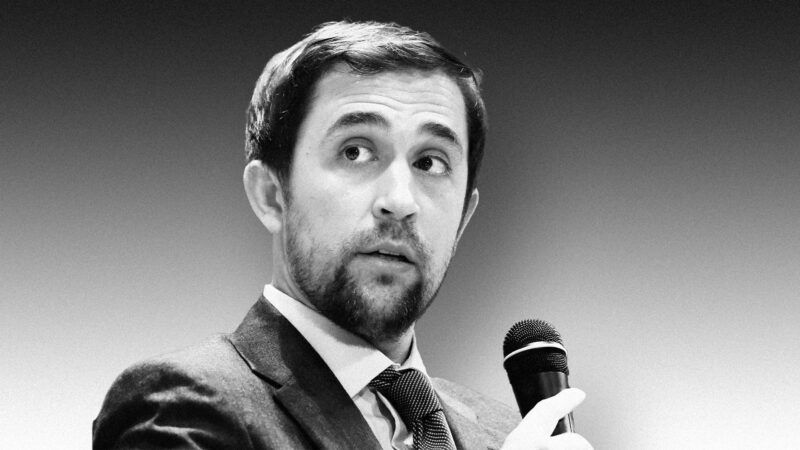Firing a Professor for 'Left-Wing' Views Is Unconstitutional
But Chris Rufo bragged about breaking the law anyway.

On Tuesday, conservative activist and New College of Florida trustee Christopher Rufo announced that the college had declined to renew a visiting professor's contract because of his purportedly "left-wing" views.
While Rufo hailed the ouster as a victory for the "classical liberal arts tradition," he didn't seem to realize that it was also likely a violation of the First Amendment.
The New College of Florida is a small, public liberal arts university in Sarasota, Florida. The university, known for its "uniquely" accepting environment for LGBT students, has recently been subject to considerable upheaval. Earlier this year, Republican Gov. Ron DeSantis fired the university's president and appointed six new trustees in an effort to turn the university into a "little Hillsdale," in reference to the conservative Christian college in Michigan. One of those new trustees was Christopher Rufo, a conservative activist and senior fellow at the Manhattan Institute known best for pushing bans on critical race theory across the country.
This week, the university seemingly took further steps toward shaping its new, more conservative mold. On Tuesday, Rufo bragged on Twitter about a recent decision not to renew the contract of Erik Wallenberg, a "left-wing" visiting professor of history at the college.
"New College of Florida has let the contract for visiting professor Erik Wallenberg expire. He will not be returning to the campus," Rufo tweeted. "I wish Professor Wallenberg well and hope his work on 'radical theatre and environmental movements' finds a more suitable home."
"It is a privilege, not a right, to be employed by a taxpayer-funded university. New College will no longer be a jobs program for middling, left-wing intellectuals," he added. "We are reviving the great classical liberal arts tradition and setting a new standard for public education."
In Rufo's first tweet, he quote-tweeted a screenshot from a March Teen Vogue op-ed co-written by Wallenberg, in which he criticized the political takeover of the university. That month, Rufo tweeted in response to that piece, "Let's look at their CVs. Oh: 'How to Subvert the Capitalist White-Supremacist University,' 'radical Black feminism,' 'queer theory'….Pure left-wing Mad Libs. Luckily, both are visiting professors."
While Rufo does not explicitly state that Wallenberg was fired for his political beliefs, it is clearly the meaning he wishes his hundreds of thousands of Twitter followers to take from his announcement.
"To the extent questions remain regarding whether New College's leadership intends to filter faculty appointments or classroom discussion based on its viewpoint, Rufo's assertion—that the college has taken adverse employment action against a public faculty member in retaliation for his constitutionally-protected views, teaching, and criticisms—is a disappointing answer," wrote Foundation for Individual Rights and Expression (FIRE) attorney Alex Morey in a Thursday letter to the university. "While a public institution may generally decline to renew a contract for a good reason, an unwise reason, or no reason at all, it cannot do so for a retaliatory reason—including for the expression of protected speech."
Morey argued that Wallenberg has a clear First Amendment right to criticize the university outside the classroom and academic freedom within the classroom. "It is well-settled that faculty at public universities and colleges have expressive rights outside the classroom, including the right to criticize their institutions' leaders," she wrote. "The First Amendment protects public faculty members' expressive rights, including the right of academic freedom, which the Supreme Court has cited as of 'special concern to the First Amendment.'"
By framing Wallenberg's contract nonrenewal as a victory against "left-wing" ideology in public universities, Rufo clearly implies that Wallenberg was ousted for his political beliefs and his public criticism of the university—something which is plainly unconstitutional.
"Higher ed needs more viewpoint diversity, including faculty who are more representative of the wide variety of views people actually hold," Morey tells Reason. "But any college taking up censorship as their tool of choice in the fight for free speech, is no true friend of intellectual freedom."
As much as Rufo and his allies in the Florida statehouse like to pretend that the First Amendment doesn't apply to public universities, they can't escape the simple fact that it does—and their wishful thinking just might land them in court.

Show Comments (123)